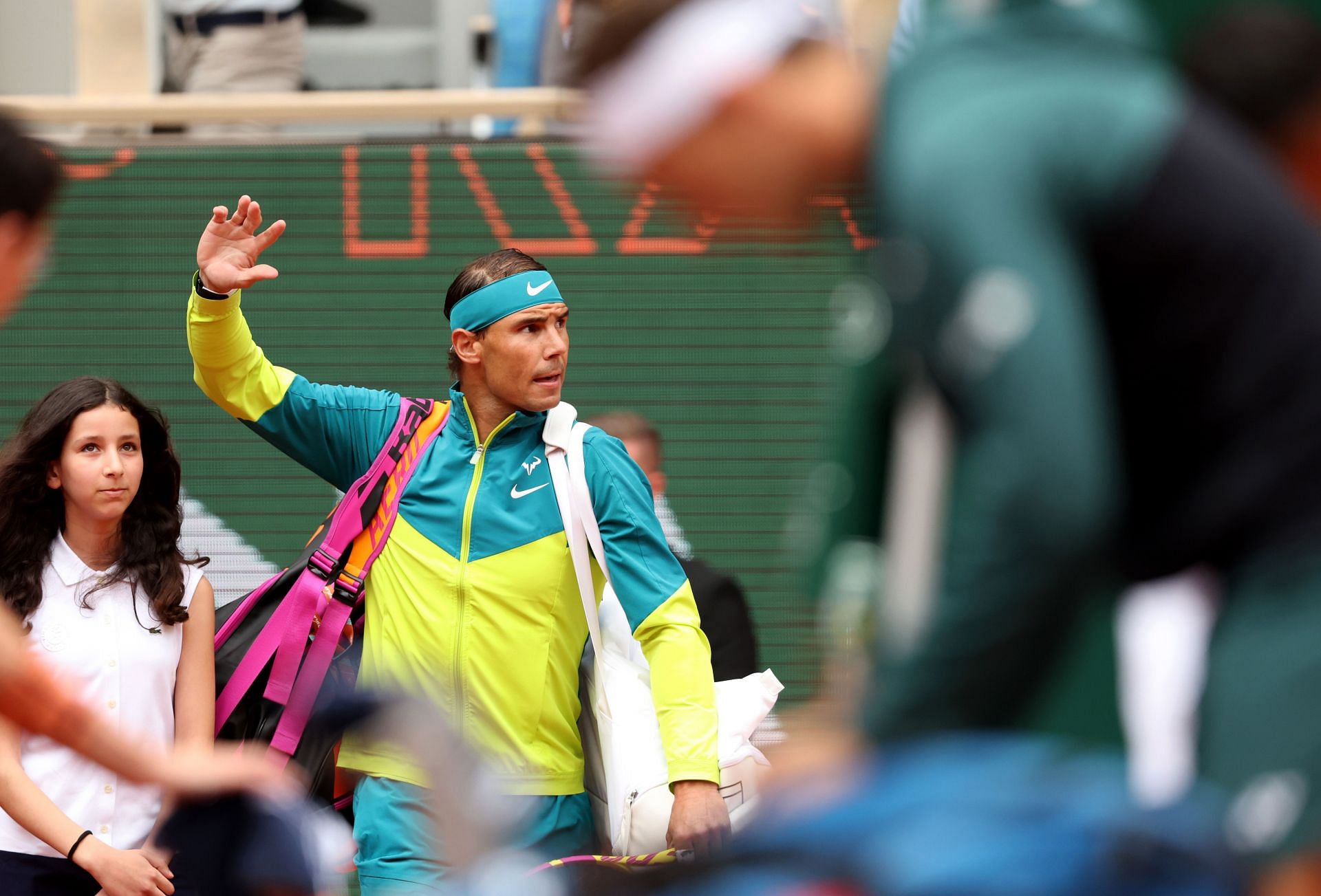
From legal standpoint, Rafael Nadal did not cheat by taking injections, but from ethical point of view, what he did was highly questionable: Radiologist Adrien Roux

Adrien Roux, a radiologist in France who routinely treats footballers at Ligue 1 club Stade Rennais, has criticized Rafael Nadal over his decision to play with an anesthetized foot at the French Open.
While the Frenchman did not see anything legally wrong with Nadal's choice, he did not think it was ethically right for the Mallorcan, who has a degenerative foot condition called Muller-Weiss syndrome, to take injections for the pain.
After winning the French Open, the 22-time Grand Slam champion revealed that he injected his foot with pain medication during the tournament so that he could be in a position to compete.
In the days since, the World No. 4 has attracted questions from athletes in other disciplines who are of the opinion that this would amount to doping in their respective sports.
Speaking to French daily Ouest-France, Dr. Adrien Roux remarked that the former World No. 1 was well within his rights to take measures to reduce the pain, since there are no regulations against them in tennis.
"From a legal point of view, no. Nadal did not cheat in any way, there are no regulations preventing injections of anesthetics in tennis. Moreover, injectable anesthetics do not have anabolic or exciting properties, whatever their mode of administration," Roux said. "This is not the case with corticosteroids taken orally, which can have an anabolic effect taken on a regular basis."
However, Roux agreed with those who felt that the injections enabled the 36-year-old to perform better physically and mentally.
"But in my opinion, this poses a real problem. The definition of doping is an external chemical substance that will make you perform better, physically or mentally. There, we put a nerve to sleep to put a painful area to sleep, even ultra-painful because its pathology is “a lot of pain”. A normal individual could probably barely walk without pain," Roux said.
Since the purpose of the treatment was to prevent the nerves in the foot responsible for sending pain impulses from communicating with the brain, the radiologist feels the procedure is similar to performance enhancement.
"I think putting this nerve to sleep improves his performance at the time in the sense that it helps to reduce his pain, perhaps even erase it, which allows him to maintain his usual level of performance," Roux said.
"The pain normally reduces performance, but the injection allows him to be as efficient, so to have had recourse to help to improve his performance as an injured athlete. From an ethical point of view, it is highly questionable," he added.
"Is it fair that an athlete wins an event when he should logically give up because of his pathology?" - Dr. Adrien Roux on Rafael Nadal's French Open triumph

During the interview, Dr. Adrien Roux also remarked that he understood why some athletes were not chuffed with Rafael Nadal, since "over-medicalization" was one of the reasons he could compete in the tournament in the first place.
"I completely understand that some athletes are embarrassed, I agree with them. Just like those who lost to Nadal during Roland Garros can be annoyed. We are on an over-medicalization of the player which poses a problem," Roux said. "Is it fair that, thanks to an injection, an athlete wins an event when he should logically give up because of his pathology?"
As for possible solutions, the Frenchman was of the opinion that the World Anti-Doping Agency (WADA) needs to step in and regulate such practices across the board. Until then, Roux feels there is no reason for athletes to let go of an opportunity to potentially "abuse" pain medications to their own advantage.
"All of this needs to be clarified and legislated at WADA level. You have to know what you can do in terms of injections, when, at what rate, with what and at what dose. Above all, standardize this for the different sports. "You really have to take stock of injections in general, supervise them, in order to avoid abuses,” Roux said